A gallery of example particle effects. Click on the images to see full-size versions
of the images. You can and should download the TPE files and their textures in
a zip file, as all of these are more interesting in
motion.
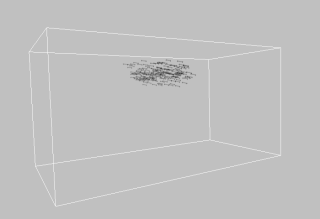
|
A volley of arrows. The arrows are launched from a line on the bottom edge of the effect with
an initial acceleration, and use a constant gravitational force to pull them down. A small amount
of random variation in the initial direction gives a convincing separation during flight.
|
|
A candle flame effect achieved with additive blending of a reddish-orange texture. As multiple
particles accumulate the reddish-orange it saturates into a white core to the flame. The particles
are set to die off after two seconds, and steadily shrink over that time period.
|

|
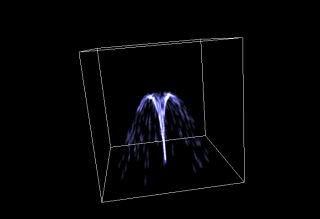
|
The standard particle system example, a sprinkler or fountain. The particles are emitted from
a small region at the base nearly straight up, then subjected to a constant gravitational
force and a negative line attractor force along the axis of the sprinkler, which creates a
spreading motion. The particles are oriented with their direction of movement and use a
texture that gives a line-like effect.
|
|
A variation on the sprinkler, the spark shower simply starts halfway up one of the edges of
the effect and uses a much more random initial force.
|
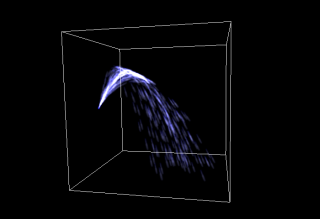
|
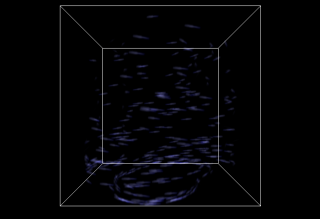
|
The flurry effect uses a vertical line attractor to pull an initially perpendicular particle
stream into orbit. A small constant upward force causes the flurry to grow upward.
|
|
A slower, tighter version of the flurry, the vortex is my personal favorite.
|
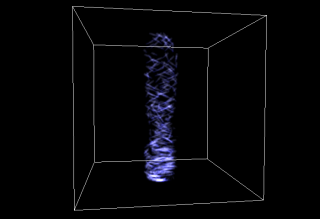
|
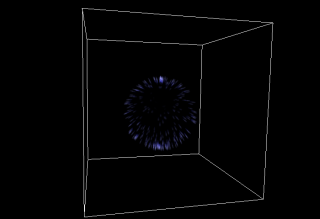
|
A firework effect achieved with a completely random initial direction combined with a gravity
force. By setting the minimum and maximum update counts equal the system is forced to create
all of the particles at once, over and over.
|






